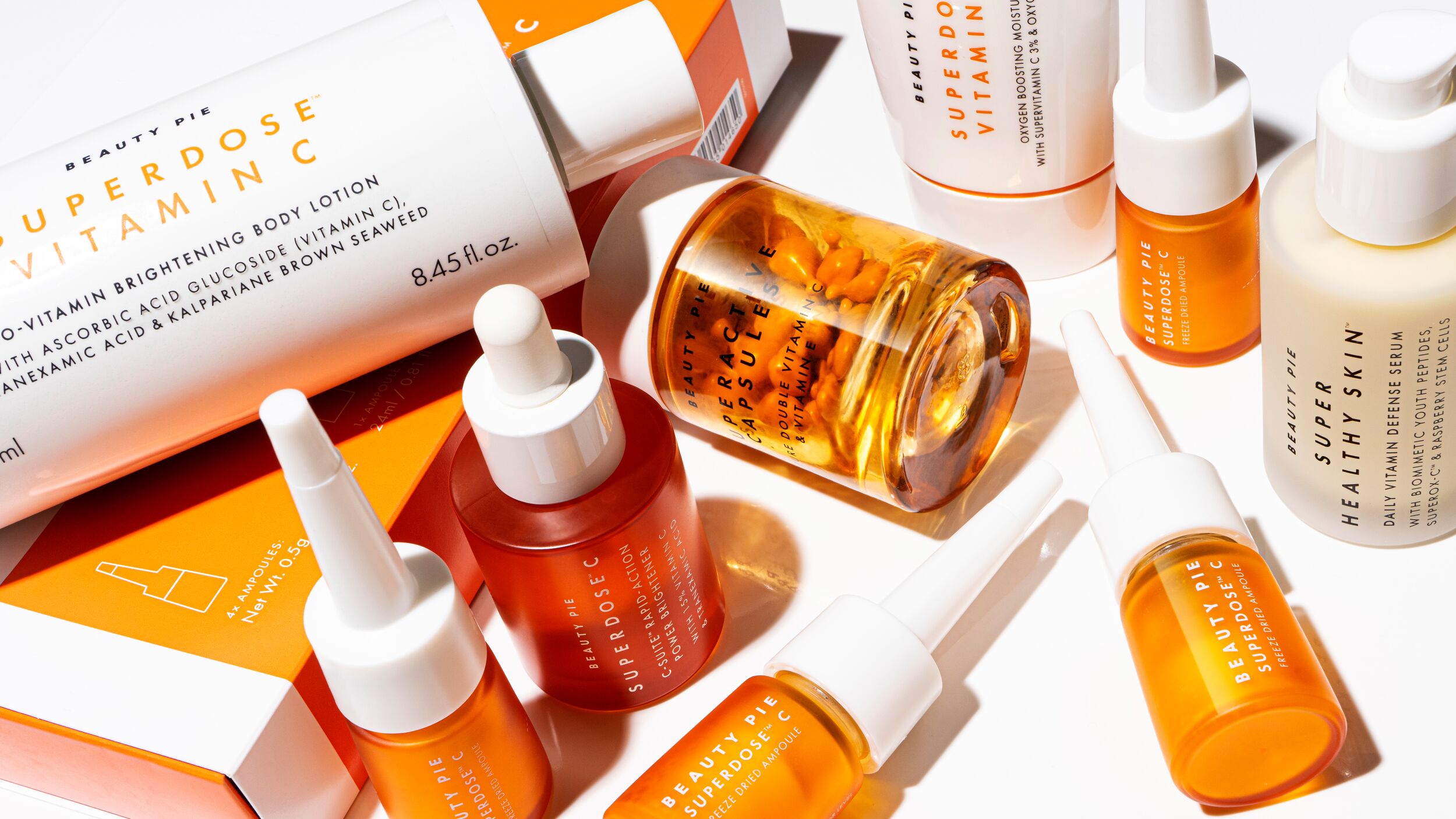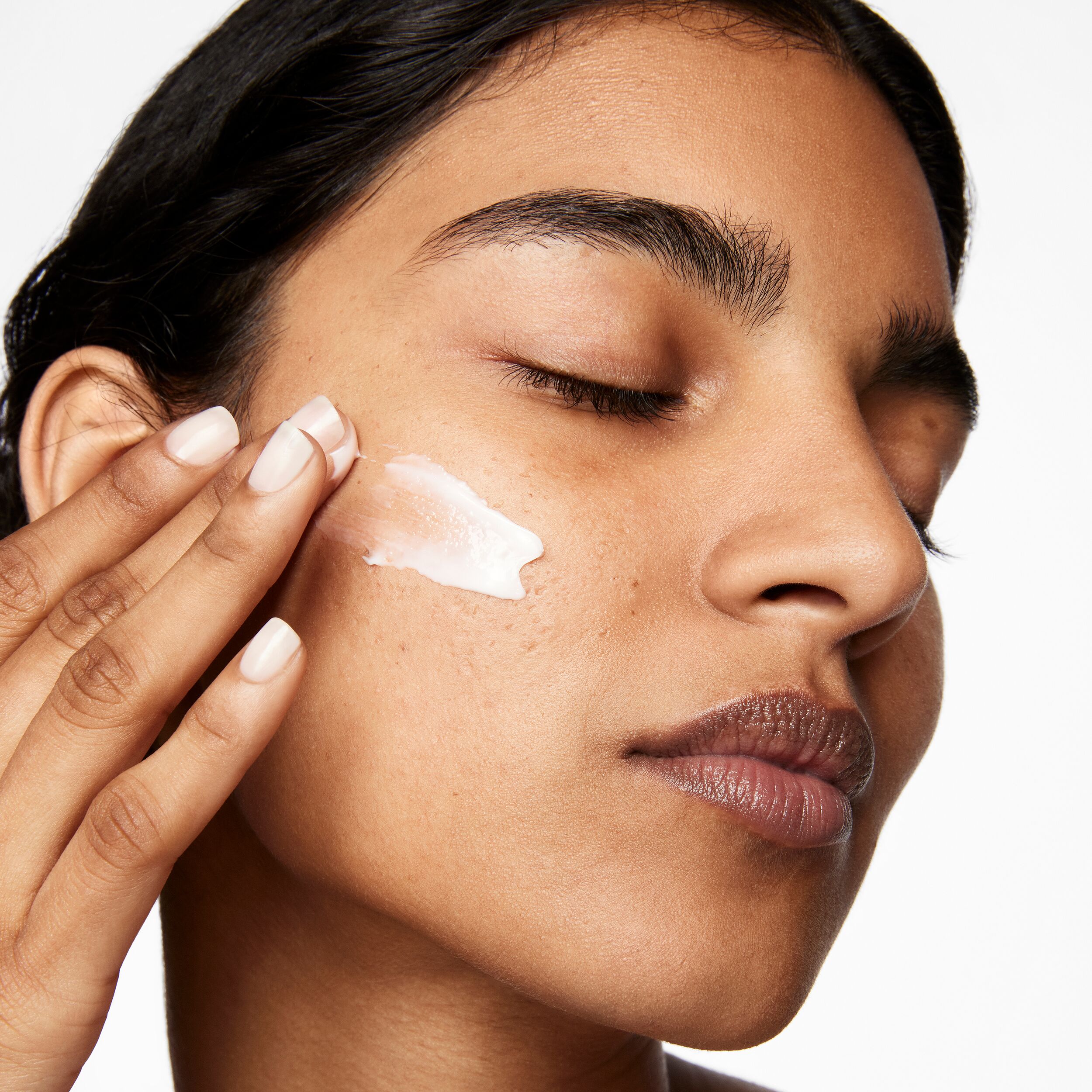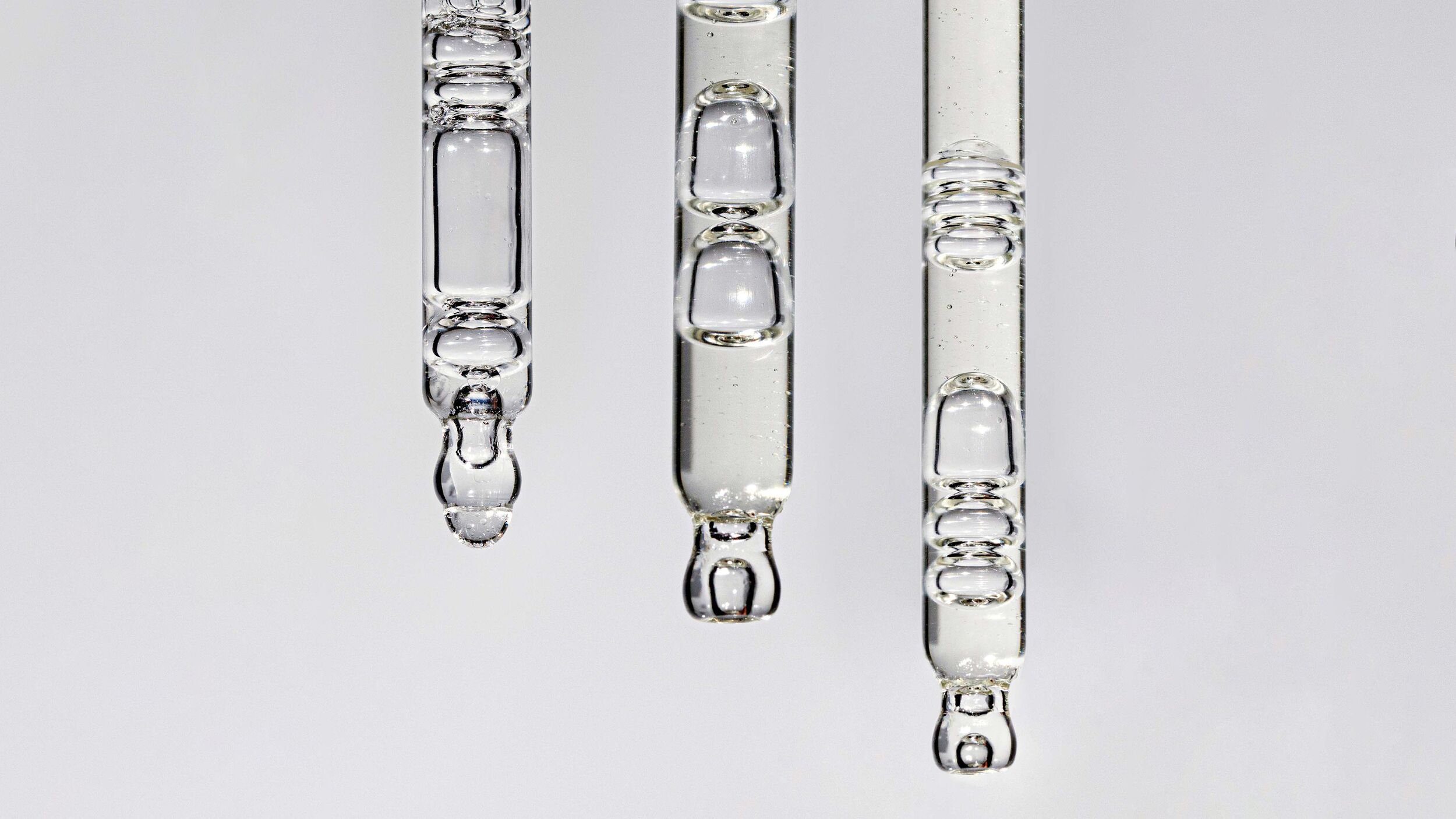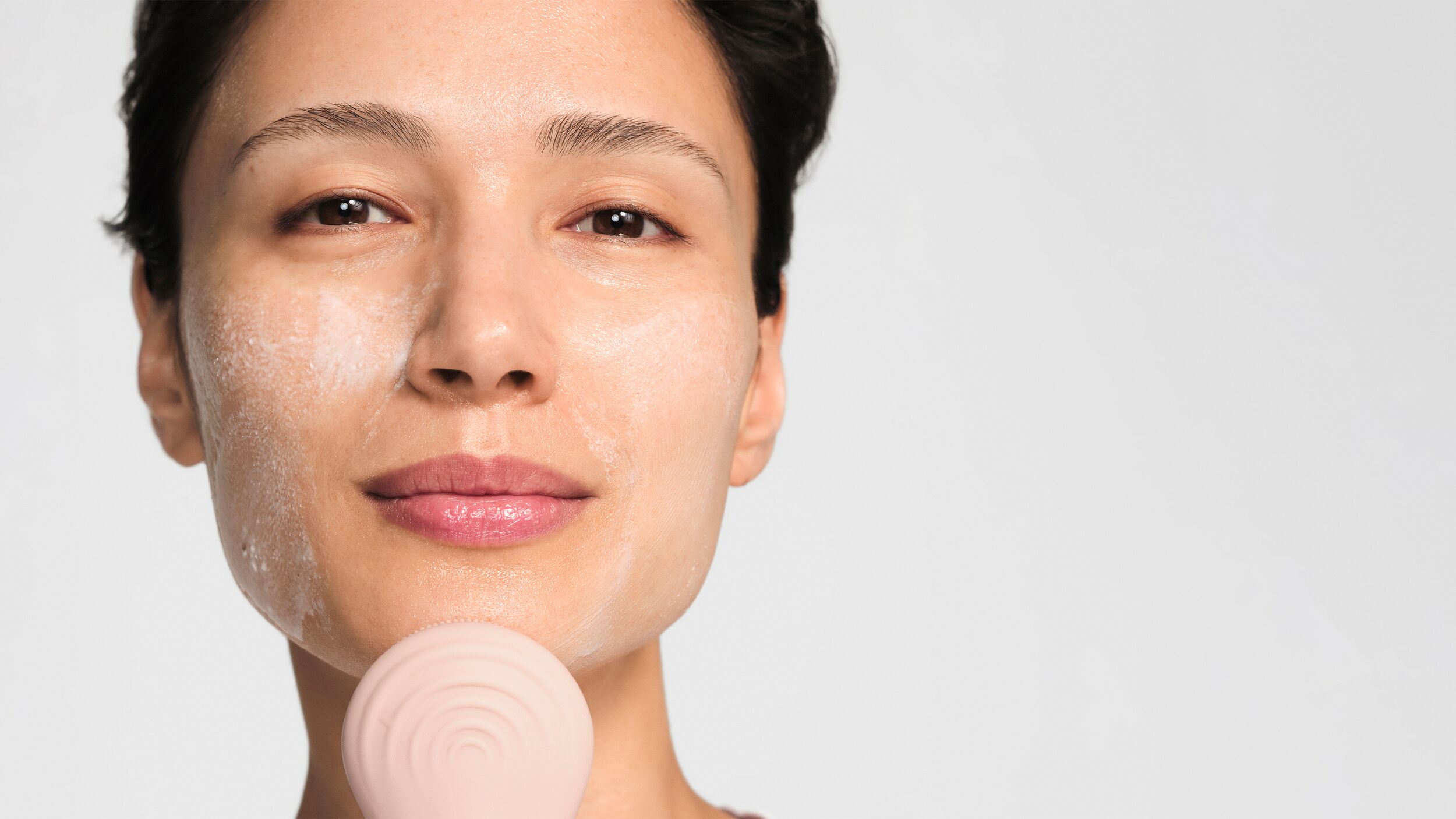
Vitamin C is one of the most beneficial active ingredients in skincare. This powerful, potent antioxidant is proven to protect, boost and brighten dull skin – and is universally recommended by dermatologists everywhere – largely because (unlike some retinoids) it is incredibly user-friendly, and works well combined with other products.
Vitamin C, sometimes referred to as Ascorbic Acid, can be beneficial to anyone's skin, regardless of skin type, but what actually is Vitamin C, and what are the benefits for skin?
We put your most FAQ to Consultant Dermatologist Dr Andrew C Markey MD FRCP
What is Vitamin C?
‘Like Retinol, Vitamin C is another 'magic bullet' for dermatologists. A natural antioxidant, Vitamin C is required for the growth and repair of tissues in all parts of our bodies, including our skin. Humans lack the enzyme required for synthesis of vit C, which is why we need to acquire it from natural sources – such as citrus fruits and green leafy vegetables,’ says Dr Markey.
A natural antioxidant, Vitamin C is required for the growth and repair of tissues in all parts of our bodies, including our skin.
Dr Andrew Markey, Consultant Dermatologist
What are the different types of Vitamin C?
The beauty industry has many forms for Vitamin C. Check ingredients labels for:
L-ascorbic Acid (LAA): The chemical name for pure Vitamin C – Ascorbic Acid is the most active (and unstable) form of Vitamin C. High concentrations used to treat persistent skin problems. It can cause irritation due to the PH of acid it's mixed with.
Ascorbic acid/Vitamin C esters: Non-acidic version of Vitamin C most suited to sensitive skin. Most commonly used: Ascorbyl glucoside; sodium ascorbyl phosphate (SAP) magnesium ascorbyl phosphate (MAP)
Ascorbyl Phosphate - A slightly weaker form of Vitamin C that can be dissolved in water (making it a popular choice for water-based skincare products like serums).
Nikkol VC-IP® - A cosmetic Vitamin C that can be dissolved in oil-based products, like moisturizers.
Superox-C – Extracted from the Vitamin C-rich Kakadu Plum and used in a range of beauty products.
How does Vitamin C benefit the skin?
Suitable for all skin types, Vitamin C is great for anti-aging, reducing hyperpigmentation and brightening skin:
This antioxidant protects from irritation, inflammation and environmental stressors (UV damage, air pollution).
Boosts the production of collagen and prevents premature aging of the skin.
Brightens dull skin and balances skin tone by decreasing the production of pigment (reducing sun damage spots, hyperpigmentation and any redness post-breakout on acne-prone skin)
Vitamin C is proven to work and (unlike retinoids) suitable to use during pregnancy
Can I get enough Vitamin C from my diet?
There is a limit to the amount of Vitamin C that can be absorbed by the gut – and bioavailability is inadequate for skin when taken orally. Dermatologists favor the use of topical ascorbic acid for good skin health.
While most dermatologists agree that the best vitamin C skincare product to use is serum (designed to deliver targeted, more potent ingredients more deeply into the skin), it’s less about the vehicle that Vitamin C comes in, and more about the type of Vitamin C that is being applied.
‘L-ascorbic Acid is the most active form of Vitamin C,’ says Dr Markey – ‘but it has to be formulated in an acidic base to get it through the skin barrier, and this can irritate some patients' skin. For this reason more ‘friendly’ forms such as ascorbyl glucoside or magnesium ascorbyl phosphate (MAP) are often used.’
What are the side effects of using Vitamin C?
Vitamin C shouldn’t cause any skin irritation if used correctly, but if the products you’re using have a high concentration, the acidic qualities can cause some minor sensitivity.
Possible side effects of using Vitamin C can include:
Stinging or dryness can occur with pure ascorbic acid.
Vitamin C esters are more suitable for sensitive skin – speak to your dermatologist if you have very sensitive skin.
Vitamin C can stain clothes if it oxidizes.
If you have sensitive skin, make sure you:
Choose skincare products with a maximum 10% concentration of Vitamin C.
Introduce it gradually. If it’s recommended to use a product twice a day, start off with one dose to give your skin time to adjust.
 Vitamin C works well with other ingredients
Vitamin C works well with other ingredientsHow does Vitamin C work with other ingredients?
“The chances are you already know what order to apply Vitamin C serum in your skincare routine - including how much and how often but Vitamin C should never be underestimated as a skincare ingredient. Not only is it proven to work but it’s easy to introduce into most skincare routines. Formulated as serums or drops, it’s quick to apply and works incredibly well with overlying moisturizers, sunscreen and makeup.” Dr. Andrew Markey.
Antioxidants
Vitamin C effectiveness increases when combined with complementing antioxidants i.e. Ferulic Acid and Vitamin E.
In fact, Vitamin C sits well with most other active ingredients.
How to use Vitamin C for hyperpigmentation, melasma and acne (post-breakout pigmentation)
Anti-inflammatory antioxidant ferulic acid helps to boost the stability and efficacy of ascorbic acid, offering double protection against free-radical damage. High concentrations of gold standard pure Vitamin C (15%) and ferulic acid (.5%) work to help reduce pigmentation and redness as well as calming skin.
Formulated as serums or drops, it’s quick to apply and works incredibly well with overlying moisturizers, sunscreen and makeup
Dr Andrew Markey, Consultant Dermatologist
How to use Vitamin C with Ferulic Acid
A combination product does the hard work for you. Apply each morning and (optionally) evening, massaging five to six drops onto a clean face before applying a moisture lotion and broad spectrum SPF.
How to use Vitamin C for hyperpigmentation
Vitamin E is a fat-soluble antioxidant. By adding Vitamin C and E serums into your routine – or using products that contain both – you’re giving your skin double the antioxidant ammunition to fight UV damage. Research shows that the combination of vitamins E, C, and SPF can even increase the effectiveness of sun protection.
How to use Vitamin C with Vitamin E
Layer under your moisturizer as-and-when-needed. SuperActive Capsules Pure Double Vitamin C & Vitamin E hold fresh-doses of stable 10% pure Vitamin C plus symbiotic Vitamin E to comfort as they brighten.
How to use Vitamin C serum with Cica
A topical combination of Vitamin C and antioxidant-rich Cica (centella asiatica) significantly improves skin suppleness, firmness, and hydration.
Superdose™ Vitamin C Bio-Vitamin Brightening Body Lotion boasts all the brightening benefits of Vitamin C, alongside the richness of Cica cream.
How to use Vitamin C for anti-aging
Boost the anti-aging benefits of Vitamin C with azelaic acid, backuchiol or hyaluronic acid. Skin-replenishing (humectant) hyaluronic acid will plump up your skin and make fine lines look less noticeable.
How to use Vitamin C serum with Hyaluronic Acid
Vitamin C should be applied after cleansing, especially if you’re using a Vit-C product that’s in a serum or dropper format, as you should always apply your textures in order from lightest to heaviest. Apply your Hyaluronic Acid serum/cream next. Vitamin C and Hyaluronic Acid – or a product combining both – can be applied before bed (or before SPF if part of your morning skincare routine).

Cell-Communicating Ingredients
Derived forms of Vitamin C (they’re often called things like L-Ascorbic Acid) work better if they’re mixed with other cell-communication products, like Retinol or Niacinamide.
How to use Vitamin C with Retinol
Studies have shown the Vitamin-A-and-Vitamin-C combination to be highly effective in reversing both natural aging and photoaging.
Either alternate their use (AM: Vitamin C; PM: Retinol) or up the efficiency and opt for a combination product. PM: Add one or two pumps of a combination product like our Super Retinol (+ Vitamin C) Night Moisturizer to your face after cleansing/toning. (And don’t forget to use SPF in the mornings, too.)
How to use Vitamin C with Niacinamide
Vitamin C and Niacinamide complement one another by improving skin radiance and evening out skin tone and texture. Unless you’re seeing flushing, your skin is likely fine with the combination.
You’re safe to use both Niacinamide and Vitamin C – either combined in one product, or layered. If you’re nervous, apply niacinamide at night and Vitamin C in the morning. Both Vitamin C and Niacinamide are safe to use during pregnancy.
Which ingredients should not be used with Vitamin C?
Some chemical exfoliants and AHAs may cause skin irritation when used with Vitamin C, especially if used daily.
“Though you’re unlikely to see a topical reaction with Vitamin C esters, Benzoyl Peroxide can oxidize ascorbic acid and may reduce its efficacy. If you need both ingredients in your routine, try alternating products or limiting your Benzoyl Peroxide to individual spots. If in doubt, ask your dermatologist which ingredient is most suited to your skin concerns,” recommends Dr. Markey.
Footnotes
Reviewed by Consultant Dermatologist Dr Andrew C Markey MD FRCP.


